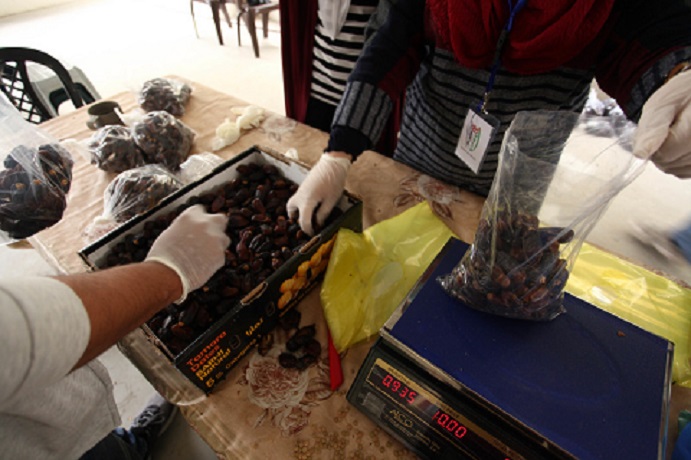
Fedaa al-Qedra
The Electronic Intifada / May 5, 2020
Nabil Mattar is unable to fulfil his family’s needs.
Until recently, he sold cell phone accessories in Gaza’s markets. The restrictions introduced in response to the COVID-19 pandemic have left him without an income.
“I used to earn $10 per day,” Mattar, a father of seven, said. “It was too small an amount to be able to save anything. I have no money to feed my children since I have stopped working.”
The loss affects his sense of dignity. “You cannot imagine how it feels for a father to stand helpless in front of his children,” he said.
Unemployment was already a major problem before the first cases of the new coronavirus were confirmed in Gaza during March.
The official unemployment rate in Gaza was 43 percent during the last few months of 2019. According to the Palestinian Central Bureau of Statistics, that meant more than 208,000 people were without work.
“Shock”
A further 130,000 have now been made jobless since the pandemic broke out, according to Gaza’s economy ministry.
The ministry has estimated that 25,000 people working in hotels, restaurants and coffee shops have been laid off since the lockdown began.
Ibrahim al-Dali is one of them. He used to be a waiter at a hotel on the Gaza City seafront.
“Losing my job was a shock for my family,” he said.
Al-Dali has long been their main breadwinner. With his salary, he has supported his parents and two of his brothers.
His father used to work in Israel but has been unemployed because of the full blockade imposed on Gaza for the past 13 years.
“It is difficult for a young man like me to sit at home,” al-Dali said. “But the most difficult thing is that I can no longer help my family.”
Gaza’s residents are marking Ramadan in a low-key manner. Normally, restaurants and coffee shops are busy during the holy month as many families go out in the evenings to end a day of fasting.
This year, however, the catering sector has almost ground to a halt. Rather than facilitating tourism and leisure activities, hotels are now being used as isolation centers.
Gaza’s Labour Ministry has allocated $1 million to aid people who have been made jobless during the pandemic.
Ibrahim al-Dali, the unemployed waiter, applied for a $100 payment from the ministry’s website. He was turned down on the basis that he is not married.
In total, the ministry deemed approximately 40,000 applicants eligible for the payment. Yet it was only able to aid 10,000.
Empty streets
Ahmad Younis, a taxi driver, did receive the $100 payment. But the payment was “very small and does not cover the amount I have lost,” he said.
“The transportation sector is normally very active,” he said. “But when I go out in my car these days, the streets are almost empty. I have so few passengers that I can barely make ends meet. I fear the situation will continue like this for months. That would be a disaster for me.”
The Palestinian Central Bureau of Statistics has estimated that the new coronavirus could result in the gross domestic product for the West Bank and Gaza being 14 percent less in 2020 than last year. That would mean a total loss of approximately $2.5 billion.
Some businesses are striving to meet the challenges posed by COVID-19.
Several textile companies in Gaza have begun making protective masks, particularly for clients in Israel.
The garment sector used to be a key player in the local economy but was badly damaged when Israel imposed a ban on textile exports in 2007. That ban was only eased in 2015, leading to a partial resurgence of Gaza’s clothing trade.
Perhaps it is too early to say if mask production will give the textiles sector a sorely-needed boost. And in any event, such a boost would not be sufficient to compensate for the deeper problems afflicting Gaza’s economy – problems caused by Israel acting in concert with the world’s most powerful governments.
Fedaa al-Qedra is a journalist in Gaza












